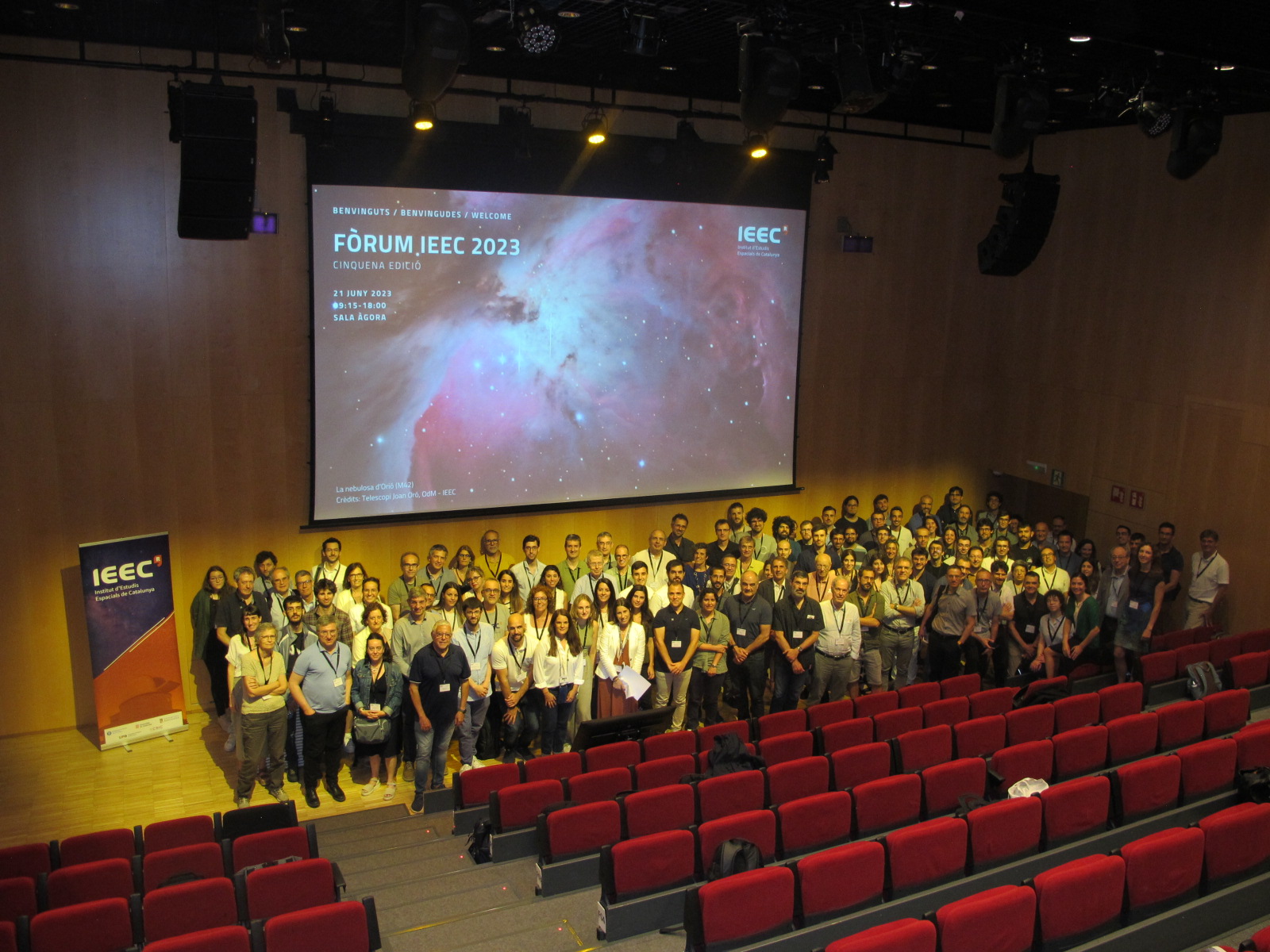The 5th IEEC Forum gathers more than 120 attendees at Cosmocaixa

The day began with a welcome speech from the director, Ignasi Ribas, who gave a general presentation of the Institute. He was followed by Marc Ribó, director of the Montsec Observatory, who commented on the latest developments in this infrastructure, such as the recent incorporation of new filters for the Joan Oró Telescope.
This first session also featured the head of the IEEC Communication Office, Ana Montaner, who announced the publication of the Montsec Observatory new website. Joan Anton Català, curator of the Joan Oró Year, presented this emblematic figure of Catalan and universal astronomy, along with some activities carried out in the centenary of his birth.
The morning ended with an excellent panel on gravitational waves: Eugenio Coccia (director of the Institute of High Energy Physics), Alicia M. Sintes (professor at the University of the Balearic Islands), and Carlos Sopuerta, moderated by Xavier Luri (director of the ICCUB).
The coffee break also served to see the posters that some IEEC researchers were encouraged to present.
Luisa Lara, researcher at the Institute of Astrophysics of Andalusia (IAA-CSIC), opened the second session of the day. She spoke about the mission of the European Space Agency (ESA) JUICE, which will explore the Jupiter system. Josep Maria Trigo-Rodríguez followed her at the lectern, talking about planetary defence and the DART and HERA missions.
Ignasi Esteva, Guillem Anglada and Carles Sierra then presented the beginnings of the PhotSat project, and Juan Ramos continued with C3SatP, a payload for Earth observation.
This second part closed with 10 Elevator Pitches of 2 minutes each, a session especially aimed at young researchers and PhD students. The presentations, which touched on virtually all branches and research units of the IEEC, showcased the participants' research (scientific or technological).

Ignasi Ribas, IEEC director, during his welcome presentation.
Pilar Montes, director of the Management Area and Manager of the IEEC, made the delivery of the awards for Best Final Master's Thesis (2021/22), awarded to Judit Donada Oliu and the Best Doctoral Thesis (2020/21 or 2021/22), awarded to David Baroch and Joan Francesc Muñoz.
In the last block of talks, Carlos López updated us on the uses of artificial intelligence for Earth observation, and Nadia Blagorodnova talked about violent interactions between massive stars. On the other hand, Helena Ubach brought the topic of gravitational waves back again, showing us how they can be used to explore astrophysical objects.
The last part of this session dealt with the opportunities in the framework of the creation of the Spanish Space Agency and the Area for the Promotion of the Space Sector of Catalonia (APEC) of the IEEC. The presentation was given by Pep Colomé (APEC director) and Ignasi Ribas, who spoke on the Spanish side on behalf of Álvaro Giménez (CDTI), an external guest who was unable to attend. Afterwards, the floor was opened to an audience eager to raise their concerns about mitigation of light pollution caused by satellites and the use of data and privacy, among many other issues.
Finally, a glass of cava and some IEEC biscuits were served as a snack for some socialisation before the conference was dismissed. It only remains to thank all the people who made the day run smoothly, and the IEEC members for attending and participating!
Thank you all and see you next year!
